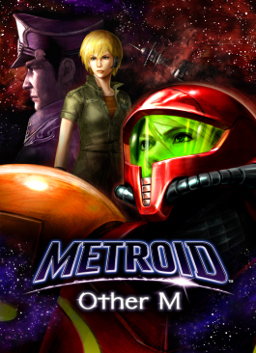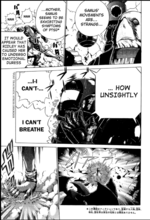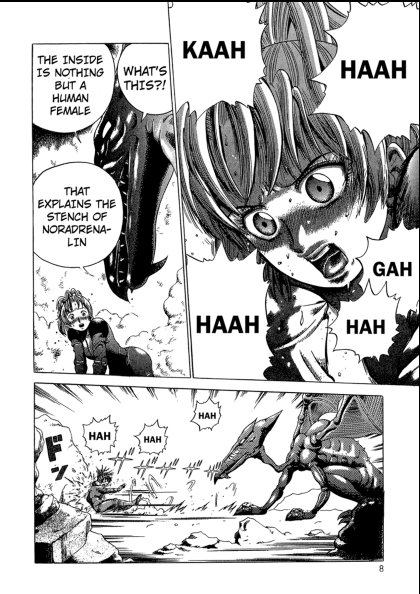Metroid: Other M Review


Metroid: Other MIn some ways Metroid: Other M is a most unusual Metroid game. Samus talks. A lot. The game is much more story-driven, with lots of cut-scenes. And flashbacks. And more cutscenes.
Yet, this really is a Metroid game, with the key elements of powerups, exploration, and a really badass suit of armor. I liked Other M, even though it was a little short. Not the greatest Metroid game ever, which is clearly Super Metroid, but good game nonetheless.
The game is beautifully rendered. Team NINJA did a good job pushing the Wii hardware with this game. I really like how fast and acrobatic Samus is in Other M. The first-person perspective of the Metroid Prime games was definitely cool, but it meant that Samus controlled like a tank, sluggish and deliberate, so that you could see where you where going. This is a limitation of the control scheme, the combination of perspective and controller imposes constraints on the ways the game can be played.
Other M's third-person perspective frees Samus to display her grace and power, and lets her do some really sweet finishing moves that make her seem like the unstoppable bounty hunter she is. This game makes good use of the Wii-mote as well. No Wii-wagging here. The Wii-mote works best for aiming, and that is what we get here, with the added retro bonus of using the Wii-mote like a NES controller. The pseudo side-scrolling action goes well with this. The classic Metroid soundtrack is all here as well.
[N.B. To all of you who complained about the mechanics of switching from third- to first-person. Have you considered that the problem might be that you suck? If you are going to get hit the game gives you bullet-time, and you can still dodge in first-person.]
There has been a lot of bitching about the story and about Samus' characterization. To be fair, if I had written the story, I would not have done it that way. It was a very Japanese kind of story, with unexplained machinations and florid emotions. The unfamiliarity of the idiom did not help, but it seems that people just plain felt betrayed that Samus Aran displayed any kind of weakness.
The only problem is: the Samus they think they know is just a figment of their imagination. There has been very little story or dialog in any of the previous Metroid games. There just isn't enough there to construct a character that could be betrayed. There are hints to be sure, but nothing approaching the kind of exposition we see here. There was a lot of text in the Metroid Prime games, but very little of it had anything to do with Samus herself. Metroid Fusion did a good job too, but there are really a whole host of potential Samuses that could have been consistent by the previous games.
The Samus we did get is consistent with the non-videogame parts of Metroid. Such as the 2002 Metroid manga. Since this has never been commercially released in the US, it is understandable that most people are not familiar with it. I remember reading some of the chapters in scanlation when it first came out, but I hadn't read the whole thing. After I played Other M, I looked up the Metroid manga, and it was clearly used to create the Samus we see in Other M. This is where we first meet Adam Malkovich, and the scene with Samus and Ridley in Other M echoes that in the manga.


So while I would not have written Samus the way she is in Other M, I didn't find her strange and alien. This Samus instantiates the doubting hero, always haunted by what could have been. The doubting hero lives in the past, and is strengthened by it while being restrained by it. One of the reasons I find this characterization plausible is that Metroid games always make me feel lonely. Samus is nearly always alone, exploring the vast ruins of ancient civilizations that have vanished. Her parents are dead. Her adoptive parents are dead. Her comrades are dead.
You would have to be a heartless bitch not to be affected by all this. Sociopaths can be effective tools, but they cannot be trusted. Those who feel no fear cannot truly be courageous. Samus feels fear. This is simply not all she feels. Samus has a strong sense of justice [tinged with revenge?], and an idealistic desire to protect the innocent. Her actions in Other M stem from this. It could have been done otherwise, but I actually kind of liked how it all turned out.
More for the nerds:



Comments ()